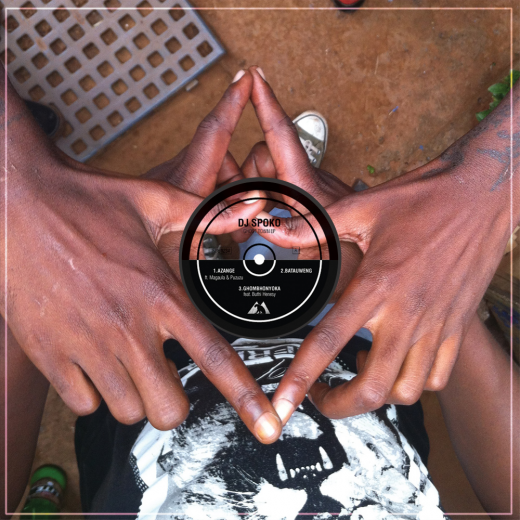The first time that DJ Spoko's music got serious international attention, it wasn't under his name. It was 2008, and DJ Mujava's indelibly raw "Township Funk" was a transglobal revelation, a stripped down groove made out of the barest of elements. Appearing in the context of the World Cup then being held in South Africa, it brought the sound of kwaito far beyond its (massive) domestic market, and launched the bravely quixotic Facebook campaign to make it the official song of the tournament (an honor that would eventually go to K'naan's insipid "Waving Flag").
It was a breathtakingly exciting record, but it was followed by next to nothing. Mujava went on to limited renown, but the few other tracks readily accessible to Western listeners failed to come even close to matching the intensity of "Township Funk." Interested listeners could follow the Internet rabbit hole into an exploration of the endless varietals of kwaito, but even when the music was great, it just wasn't the same. So when DJ Spoko's tracks first started to circulate through the blogs, they caused a fair number of ears to prick up and take notice.
A combination of original compositions and remixes (his version of "Not the Same" by American electro-pop duo Tanlines is pure magic), they shared much of "Township Funk"'s sound palette- groaningly distorted minor-key synths- and a great deal of its stuttering rhythmic sense. Yet, unlike their predecessor's single-minded minimalism, the tracks were deeper and more complex, a constantly shifting soundscape of intricately layered parts, half-chanted vocals, and sublimely twisted tones.
It turns out that Spoko, was a vital (if uncredited) part of the production team behind "Township Funk," and that he had studied sound-engineering at the studio responsible for the equally brain-bursting Shangaan Electro records. Now, with the release of the Ghost Town EP on the True Panther Sounds label, we all have the opportunity to fall into Spoko's world.
While never quite abandoning the heavy rhythm that is common to most kwaito, Spoko opens up space by de-emphasizing the music's central stomp and pulling the beat into a more equitable relationship with its surroundings. This lack of a heavy-handed center allows the tracks to breathe- even when there's a lot going on, they never feel cluttered, with numerous layers of rhythm and melody pulled in and out over atmospheric keyboards and vocals. The results are an impressive haze, driven forward on bouncing staccato beats that lose their momentum in the Spoko's sea of overlaid keys, creating a dreamlike sense of motion caught in stasis. This hanging space is further enabled by Spoko's brand of minor key melancholy, one that relies more on rhythmically intertwined layers and repeated fragments of chant and electronics than traditional melody, an approach that not only frees him from any potential for overwrought house-isms, but that allows for the creation of a more direct connection between the South Africa's electronic present and its traditional past.
On tracks such as the ultra-spare call and response of "Bautanweng" or the chord filled nostalgia of "I Remember," the Ghost Town EP pulls everything together into a sound that is a suitably haunted fit for its name, not to mention a dank swamp of a record that reveals more of its subtleties with every listen. To those who decry the influence of electronics on South African music (or who still see drum machines as the great destroyer of traditions)- please give it a chance. It's going to be a far more interesting future than you may have feared.









